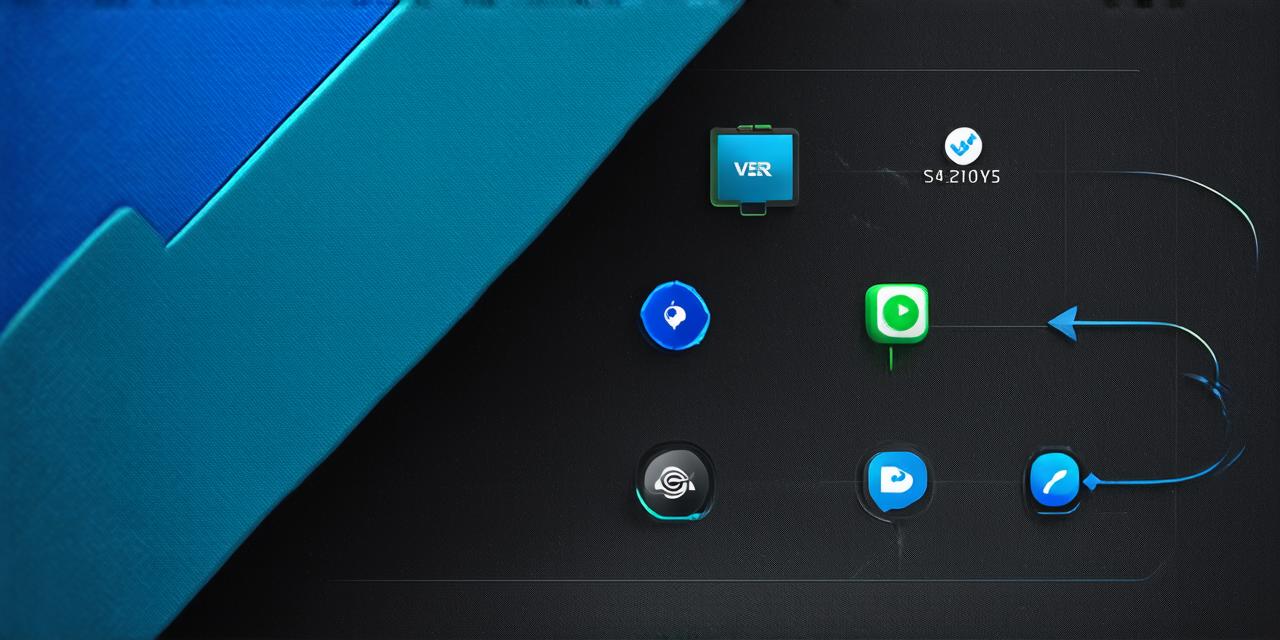What tools are used for developing mobile apps?
Mobile apps have become an integral part of our daily lives. With the increasing use of smartphones, developing mobile apps has become a complex task that requires several tools and technologies.
1. Integrated Development Environments (IDEs)
Integrated Development Environments (IDEs) are software applications that provide a complete environment for writing, testing, debugging, and deploying code. IDEs are an essential tool for developers because they make it easy to create and manage complex mobile apps.
Some popular IDEs used by app developers include Android Studio, Xcode, and Visual Studio Code.
2. Frameworks and Libraries
Frameworks and libraries provide pre-built components that can be used in mobile app development. These tools help developers save time and resources by providing ready-made solutions to common problems.
Some popular frameworks and libraries used in mobile app development include React Native, Flutter, and Angular.
3. Cross-Platform Development Tools

Cross-platform development tools allow developers to build apps that can run on multiple platforms, such as iOS and Android, with a single codebase. These tools make it possible for developers to create high-quality mobile apps quickly and efficiently.
Some popular cross-platform development tools include React Native, Flutter, and Xamarin.
4. Debugging Tools
Debugging tools are essential for identifying and fixing issues in mobile apps. These tools help developers find errors, track performance issues, and optimize code.
Some popular debugging tools used by app developers include Appium, Firebase Test Lab, and Google Chrome DevTools.
5. Cloud Services
Cloud services provide a scalable and cost-effective infrastructure for building and deploying mobile apps. Cloud services enable developers to store and access data from anywhere in the world, making it possible to build mobile apps that are highly available and reliable.
Some popular cloud services used by app developers include Amazon Web Services (AWS), Microsoft Azure, and Google Cloud Platform (GCP). These cloud services provide a comprehensive set of tools and services for building and deploying high-quality mobile apps quickly.
6. Analytics Tools
Analytics tools enable developers to track user behavior and performance metrics in their mobile apps. These tools provide insights into how users interact with the app, making it possible for developers to improve the app’s usability and engagement.
Some popular analytics tools used by app developers include Google Analytics, Mixpanel, and Amplitude.
7. Continuous Integration/Continuous Deployment (CI/CD) Tools
Continuous Integration/Continuous Deployment (CI/CD) tools automate the build, test, and deployment process of mobile apps, making it possible to deliver high-quality mobile apps quickly and efficiently.
Some popular CI/CD tools used by app developers include Jenkins, Travis CI, and CircleCI. These tools provide a comprehensive set of features for automating the build, test, and deployment process of mobile apps.
8. Version Control Systems
Version control systems enable developers to manage code changes in their mobile apps, making it possible to collaborate with other team members and track code changes over time.
Some popular version control systems used by app developers include Git and SVN. These tools provide a comprehensive set of features for managing code changes in mobile apps.
9. Debugging and Testing Tools
Debugging and testing tools enable developers to identify and fix issues in their mobile apps quickly and efficiently. These tools help developers ensure that the app is functioning as expected, making it possible to deliver high-quality mobile apps.
Some popular debugging and testing tools used by app developers include Xcode Instruments, Appium, and Firebase Test Lab.
10. Cloud-Based Collaboration Tools
Cloud-based collaboration tools enable developers to collaborate with other team members in real-time, making it possible to build high-quality mobile apps quickly and efficiently. These tools provide a comprehensive set of features for communication, collaboration, and project management.
Some popular cloud-based collaboration tools used by app developers include Slack, Trello, and Asana.
Conclusion
Developing mobile apps requires several tools and technologies. Integrated Development Environments (IDEs), frameworks and libraries, cross-platform development tools, debugging tools, cloud services, analytics tools, Continuous Integration/Continuous Deployment (CI/CD) tools, version control systems, debugging and testing tools, and cloud-based collaboration tools are all essential for building high-quality mobile apps. By using these tools effectively, app developers can create apps that are scalable, reliable, and engaging for users.
